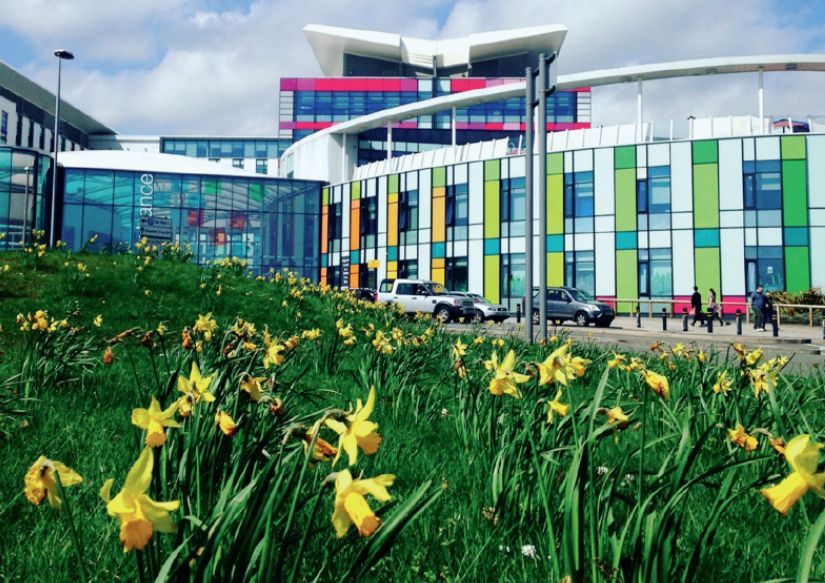Climate action
Climate change poses a major threat to our health, and tackling climate change through reducing harmful carbon emissions will improve health and save lives.
Here in the UK, air pollution is the single greatest environmental threat to human health, accounting for 1 in 20 deaths. Reducing emissions will mean fewer cases of asthma, cancer and heart disease.
That’s why, in October 2020, the NHS became the world’s first health service to commit to a target of reaching net-zero carbon emissions by 2040.
We launched our Climate Action Project Group at Sherwood Forest Hospitals the same year, to commit the Trust to becoming sustainable and reducing the impact of climate change on our community.
Our Climate Action Project Group continues to deliver our sustainability agenda, and our Green Plan (opens in new window) sets our ambitions to reduce our carbon footprint and environmental impact of our services.
We work with our Mid-Nottinghamshire Integrated Care Partnership (ICP), The Nottingham and Nottinghamshire Integrated Care System (ICS), local councils, businesses, public sector and other NHS organisations to make positive impacts on the local environment and local air quality.
We will continue to collaborate with other organisations to achieve these common goals.
In December 2021, Sherwood Forest Hospitals recognised the impact climate change has on the health of local people by declaring a climate emergency.
Backed by Trust Directors and Executives, the Trust officially recognised the affect climate change has on health by signing the Climate Emergency UK declaration.
The declaration supports Sherwood Forest Hospitals’ Green Plan commitments. View the Trust's Green Plan (opens in new window).
The Hope Orchard was initiated by Sherwood Forest Hospital’s climate action team as an initiative to draw a link between health and the environment.
On Monday 22 March 2021, Sherwood Forest Hospitals planted fruit trees on each of their sites (King’s Mill Hospital, Newark Hospital and Mansfield Community Hospital) as part of a commitment to a lower carbon future.
The hospital trust was joined in the movement by schools, public sector partners, individuals and the Woodland Trust, all planting fruit trees as part of a co-ordinated day of proactive climate change action.
So far, our climate action team have:
- Begun installing sensors in all our theatres which switch off lights and ventilation when they’re not in use
- Rolled out a project to power down computers automatically when they’re not in use
- Modified anaesthetic trolleys at Newark Hospital to be fitted with bottles of nitrous oxide, enabling us to turn off the piped supply which was leaky and inefficient
- Made changes to how patients’ menus are presented to encourage uptake of greener, healthier meal choices.
- Introduced a walking aid reuse and recycle scheme to prevent walking aids ending up in landfill
- Planted trees in our Hope Orchard around the King’s Mill Hospital site and left areas of grass to grow wild
- Recruited 50 climate champions who work in our clinical areas and are looking for opportunities (big and small) to reduce our consumable and single-use items, and save water and energy
- Introduced EV charging points to our car parks at Newark and King’s Mill Hospitals
- Started work to switch to LED lighting at all our sites
- Worked with Ashfield School and West Notts College to raise awareness and educate about the link between health and sustainability.
- Created a comprehensive guide on sustainable ways to travel to work for colleagues
The team celebrated being finalists in the Environmental Sustainability Award at the HSJ (Health Service Journal) awards in November 2021.






